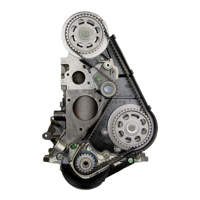How the 2.2 Ford Ranger Engine Delivers Power and Efficiency for Your Truck
How the 2.2 Ford Ranger Engine Delivers Power and Efficiency for Your Truck
Blog Article
What Makes an Auto Engine Run Efficiently: Leading Tips for Ideal Care
The smooth procedure of a cars and truck engine is essential to both efficiency and longevity, making ideal treatment a necessary responsibility for lorry owners. What certain steps should you prioritize to guarantee your engine stays in peak problem?
Normal Oil Changes
Among one of the most critical facets of car upkeep is guaranteeing your engine obtains regular oil modifications. Engine oil lubricates interior components, minimizes rubbing, and assists keep optimal operating temperature levels. Gradually, oil weakens as a result of heat, contaminants, and the natural results of combustion, causing minimized efficiency and potential engine damage.
A lot of suppliers advise altering the oil every 5,000 to 7,500 miles, but this interval can vary based on driving problems and oil type. Synthetic oils might permit for longer intervals between adjustments. Routine oil adjustments not only improve engine efficiency however additionally boost fuel performance, as clean oil promotes smoother procedure.
Overlooking oil modifications can cause sludge build-up, which harms blood circulation and can lead to severe engine concerns. It is vital to inspect oil levels routinely and check for any type of unusual changes in shade or consistency, which could show contamination or destruction.

Maintaining Coolant Levels
Keeping proper coolant levels is crucial for avoiding engine getting too hot and making certain optimal performance. The coolant, usually a blend of water and antifreeze, flows with the engine, absorbing heat and protecting against thermal stress and anxiety. Insufficient coolant can lead to enhanced engine temperatures, which may trigger severe damages or perhaps complete engine failing.
To keep optimal coolant degrees, frequently examine the coolant storage tank, generally situated in the engine bay. Guarantee the coolant is filled to the recommended mark, as suggested in your lorry's owner guidebook. It is a good idea to inspect the levels at the very least when a month or soon journeys, particularly throughout severe climate condition.
If you observe that the coolant level is consistently low, there may be a leakage in the cooling system, which must be dealt with quickly to stop more issues. 2.2 ford ranger engine. Furthermore, purging the coolant system every a couple of years can assist get rid of any type of built up debris and make sure efficient heat exchange
Checking Air Filters

It is recommended to check the air filter every 12,000 to 15,000 miles, or more frequently if driving in dusty or unfavorable conditions. A basic aesthetic assessment can often disclose whether the filter is unclean or damaged. It should be changed quickly. if the filter appears blemished or has noticeable dirt accumulation.
Utilizing a top notch air filter developed for your certain car model can further boost engine efficiency. Furthermore, some lorries might profit from multiple-use filters that can be cleaned up and this link reinstalled, providing a ecologically friendly and economical choice.
Inspecting Spark Plugs
Spark plugs are vital parts of an automobile's ignition system, straight affecting engine performance and performance. They produce the stimulate that ignites the air-fuel blend in the burning chamber, promoting the engine's power generation. Normal inspection of spark plugs is vital for preserving optimum engine feature and stopping potential issues.
During an inspection, look for indicators of wear or damage, such as splits, carbon build-up, or excessive gap widening. A healthy spark plug usually shows a brown or tan color. Dark residue or oil deposits can show inappropriate burning, while a white or raw look might suggest getting too hot. Both conditions call for immediate attention to protect against additional engine damages.
It's suggested to evaluate stimulate plugs every 30,000 miles, or as suggested in your automobile's proprietor handbook. In addition, think about changing them according to the manufacturer's guidelines, as worn or old ignition system can result in misfires, minimized gas efficiency, and increased discharges.
Tracking Tire Stress
Under-inflated tires can lead to lowered fuel effectiveness, increased tire wear, and endangered handling. Normal surveillance of tire stress is necessary for ideal vehicle operation.
Tire pressure ought to be inspected at the very least as soon as a month and eventually trips. Utilize a trustworthy tire pressure gauge to determine the pressure when the tires are cold, preferably before the car has been driven for a minimum of three hours. Refer to the vehicle's owner manual or the placard situated on the motorist's side door jamb for the manufacturer's suggested stress degrees.
It is essential to note that tire pressure can fluctuate with adjustments in temperature level; a drop of 10 ° F can result in a 1-2 psi resource reduction in pressure. Additionally, visually examine tires for any type of signs of wear or damage during your monitoring routine. Preserving proper tire pressure not only improves automobile safety yet likewise improves gas effectiveness and prolongs tire life, eventually contributing to a smoother engine efficiency.
Final Thought
In conclusion, keeping an auto engine's smooth procedure needs thorough focus to numerous essential elements. Eventually, a proactive approach to engine care is vital for guaranteeing dependability and capability over time.
One of the most essential facets of vehicle upkeep is guaranteeing your engine gets normal oil adjustments. Engine oil lubricates inner parts, minimizes rubbing, and assists preserve optimum operating temperature levels. Routine oil adjustments not just enhance engine performance yet additionally enhance gas effectiveness, as clean oil promotes smoother operation.
Not enough coolant can lead to raised engine temperatures, which may trigger severe damages or also total engine failure.

Report this page